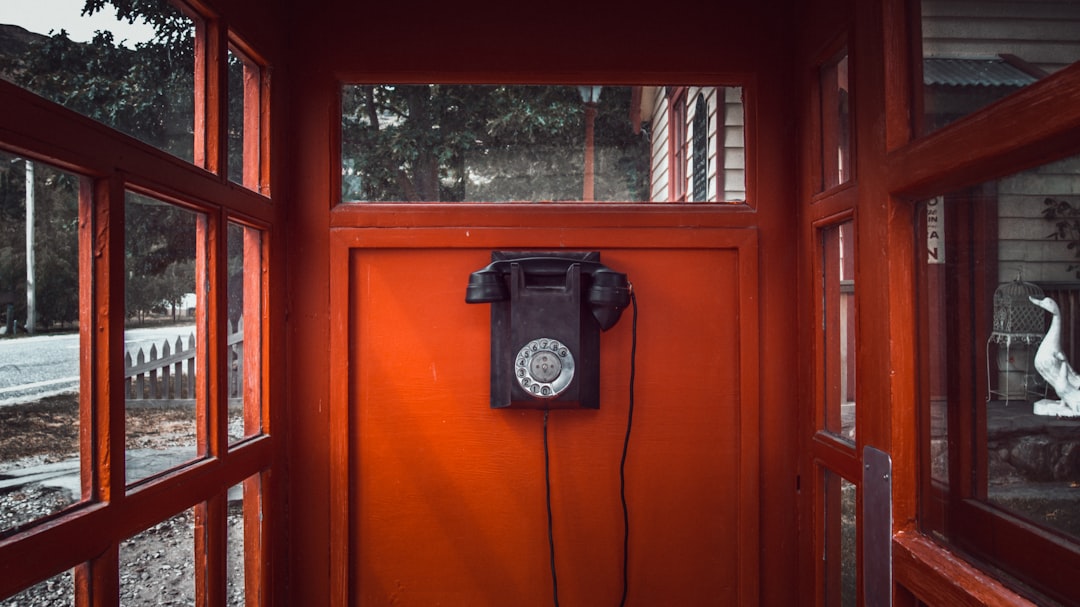Spam robocalls have become a significant issue in Charles Town, West Virginia, prompting residents to seek solutions. Specialized spam call lawyers offer guidance on identifying and blocking these calls, utilizing laws like the TCPA and West Virginia Telemarketing Act. Residents can protect themselves by registering on the National Do Not Call Registry, using call-blocking apps, and complaining to regulatory bodies. By combining education, advocacy, and legal tools, Charles Town residents can combat spam calls effectively, ensuring a quieter digital environment with the help of local spam call lawyers.
In Charles Town, as across West Virginia, robocalls have become a ubiquitous nuisance. These automated, unsolicited phone calls not only disrupt daily life but can also signal potential scams or fraud. Understanding where these ‘spam calls’ originate and how to identify them is the first step in protecting yourself. This article explores effective strategies to combat robocallers, leveraging legal protections offered by West Virginia laws, and highlights the vital role of consumer advocacy in mitigating this modern irritant. Stay informed with tips from spam call lawyers dedicated to your digital safety.
Understanding Robocalls and Their Impact in Charles Town
Robocalls, or automated phone calls, have become a ubiquitous and often unwanted presence in Charles Town, much like a spam flood in the digital age. While some robocalls offer valuable services, many residents find themselves on the receiving end of unsolicited marketing messages, surveys, or even fraudulent schemes. These calls can disrupt daily life, waste precious time, and sometimes leave individuals vulnerable to identity theft or financial loss.
In West Virginia, as in many places across the country, spam call lawyers play a crucial role in mitigating this growing issue. By understanding the types of robocalls prevalent in Charles Town—from marketing and political campaigns to scam artists posing as government agencies—residents can better protect themselves. Empowering individuals with knowledge about their rights and available legal recourse is essential in navigating and reducing the impact of these unwanted phone calls.
Identifying Spam Calls: Common Traits and Red Flags
Recognizing spam calls is the first step in protecting yourself from unwanted and potentially fraudulent interactions. While legitimate businesses often have valid reasons for contacting you, spam call lawyers West Virginia explain that certain traits and red flags can indicate an unsolicited or malicious caller. These include unusual phone numbers, frequent or repeated calls, automated messages, and demands for personal or financial information.
Spam callers often use generic greetings or scripted dialogue to reach a large number of people. They might also try to create a sense of urgency by claiming there’s a problem with your account or threatening legal action if you don’t respond immediately. It’s important to remember that reputable organizations typically follow proper protocols for customer communication, so be wary of any calls that feel suspicious or out of the ordinary.
Legal Protections Against Robocallers in West Virginia
In West Virginia, there are robust legal protections in place to safeguard residents from unwanted robocalls. The Telephone Consumer Protection Act (TCPA) is a federal law that regulates telemarketing practices and grants consumers substantial rights. It prohibits automated or prerecorded calls to cellular phones and landlines without the prior express consent of the caller. West Virginia has also enacted its own laws reinforcing these protections, such as the West Virginia Telemarketing Act, which further restricts the practices of spam call lawyers and provides additional remedies for violators.
If you’re experiencing a surge in robocalls, especially from spam call lawyers, you have options. You can register your number on the National Do Not Call Registry, file complaints with regulatory agencies, and even take legal action against persistent or aggressive callers. Consulting with a local lawyer specializing in telecom regulations can help you understand your rights and explore the best course of action to stop these unwanted intrusions.
Effective Strategies to Block and Avoid Spam Calls
In the ongoing battle against nuisance calls, particularly spam calls from Spam Call Lawyers in West Virginia, individuals now have a range of effective strategies at their disposal to protect themselves. One of the most straightforward methods is to register on the National Do Not Call Registry. This federal list helps prevent telemarketers from calling your number, significantly reducing unwanted calls. Regularly reviewing and updating your phone settings is another crucial step; most modern devices allow you to block specific numbers or types of calls, such as spam or unknown sources.
Additionally, utilizing call-blocking apps has become a popular choice. These apps use various techniques, including blacklisting known spammer numbers and advanced algorithms to identify and block potentially unwanted calls. Many offer customizable settings, allowing users to tailor their protection according to their preferences. By combining these methods, residents of Charles Town can create a robust defense against spam calls, enjoying greater peace of mind in an era where such intrusions are all too common.
The Role of Consumer Advocacy and Awareness
In the ongoing battle against robocalls, consumer advocacy and awareness play a pivotal role in Charles Town and across West Virginia. Educating residents about common robocall tactics and how to identify suspicious calls can significantly reduce their impact. Organizations dedicated to consumer protection and legal experts specializing in spam calls serve as powerful allies in this fight. They provide valuable resources, guidelines, and support to help individuals defend themselves against unwanted phone marketing.
By staying informed, Charles Town residents can become more vigilant and proactive. This includes learning about local laws pertaining to robocalls and knowing their rights. With increased awareness, consumers can report suspicious calls to the relevant authorities, which helps in tracking and penalizing the culprits. Together, these efforts create a stronger barrier against intrusive spam calls, ensuring a quieter and more peaceful communication environment for all West Virginia residents.






